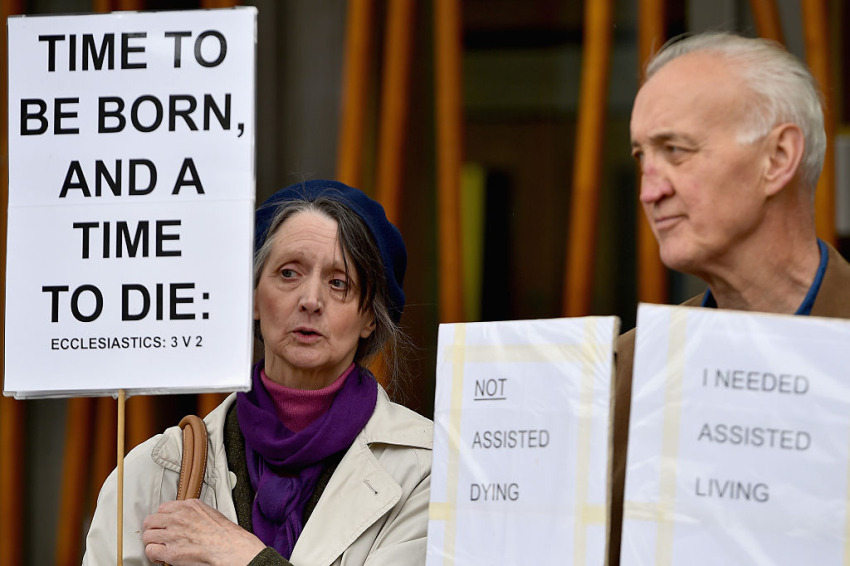Euthanasia deaths rise to all-time high in the Netherlands

Over 8,700 people died by euthanasia in the Netherlands in 2022, with a 34% increase in requests coming from dementia patients, according to data from the regional monitoring committees that also saw a spike in couples seeking to die together.
In 2022, the number of people who died by euthanasia rose to 8,720, increasing by nearly 14%, according to DutchNews, which said the number of deaths by euthanasia has been increasing by almost 10% each year.
The percentage of euthanasia-related deaths in The Netherlands rose from 4.5% to 5.1% among all deaths last year. In addition, the RTE noted that 288 euthanasia requests were carried out on dementia patients, increasing by 34% from 2021.
A total of 379 couples suffering from various illnesses died by euthanasia because they reportedly felt they had no chance of recovery, an increase of 23% from 2021. Fifty-eight of these couples chose to die together, which involves meeting with separate consultants to see if both patients meet the criteria for euthanasia.
Regarding people with severe psychiatric illnesses, 115 such individuals received help hastening their deaths, the same number as in 2021.
RTE noted that in 13 cases, doctors did not meet the legal requirements for carrying out an assisted death. Under Dutch law, euthanasia is legal only if a patient is experiencing “unbearable suffering” with no hope of improvement and the attending physician fulfills certain care criteria.
"Since euthanasia was legalized 20 years ago, just 133 of the 91,565 reports had not met the legal criteria," DutchNews reported.
During a panel discussion hosted by the Institute for Human Ecology at The Catholic University of America in April, titled "What is Euthanasia Doing to the West?," professor Charlie Camosy at the Creighton University School of Medicine, said the Dutch Parliament approved a bill legalizing euthanasia in the Netherlands in 2001. Belgium copied this example in 2002, taking it further in 2014 by lifting its age restriction on euthanasia in 2014.
Camosy warned about a "slippery slope," stressing that accepting assisted suicide turns into acceptance of euthanasia. This eventually turns into accepting euthanasia for physical illness to euthanasia for psychological distress, he said.
In Canada, which legalized assisted suicide in 2016, the country initially only permitted doctor-assisted suicide for citizens or permanent residents who were 18 years old or older with "a serious and incurable disease, illness or disability" that included "enduring and intolerable suffering."
The country’s parliament expanded the law in 2022 to patients with non-threatening physical disabilities, intending to offer assisted suicide to people with mental illness by March before the Canadian government announced a temporary delay in December last year.
If Canada proceeds with the expansion, it will be one of six countries where an individual suffering from mental illness can seek assisted suicide.
"Once you permit it, it's very difficult to keep it where it originally was intended because medically and morally, it seems unjust to limit it to the particular population for which it was intended," Camosy said.
According to data from the Oregon Public Health Division, 278 people died by assisted suicide in 2022 in the state, a 17% increase from the previous year and a new record. Since Oregon legalized assisted suicide in 1997, over 3,000 people in the state have received prescriptions under the state's Death With Dignity Act, and 2,454 people have died from taking the medications.
Among the concerns listed by those who ended their lives, 88.8% said they feared losing the ability "to engage in activities making life enjoyable" and 86.3% said they were worried about "losing autonomy." Over 40% said they were concerned about being a "[b]urden on family, friends/caregivers."
Samantha Kamman is a reporter for The Christian Post. She can be reached at: samantha.kamman@christianpost.com. Follow her on Twitter: @Samantha_Kamman



























